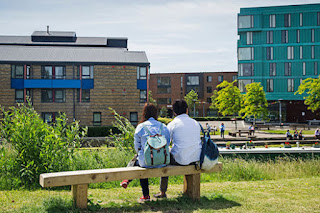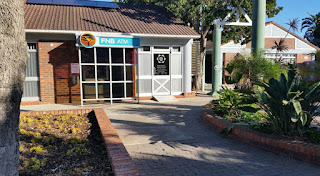Among the many benefits of studying abroad is learning about and adapting to a new culture and way of life. The accommodations you choose for your trip are important. Accommodations for international students range from on-campus dorms to off-campus residences. Various lodging options are available, each with its own set of advantages for students. Living on campus has several advantages, including being close to classes, other students, and campus services. Living in an off-campus flat gives you greater freedom, privacy, and exposure to the local culture. Students may tailor their study abroad experience by choosing the best housing based on their tastes and priorities.
Different Types of International Student Accommodation
A central authority in each nation typically handles student accommodation for international students. While some schools provide students with on-campus housing, others refer them to local flats or host families due to a lack of dormitories. The students may choose from several different possibilities for housing for foreign students. Options include dorms, flats (both shared and individual), and homestays with local families. Each student may make an informed decision that considers their goals, resources, and preferences. Let's look at the many lodging options available to students studying abroad.
On-Campus Accommodation
It is an option for overseas students to live on campus. There are several reasons why this is the best choice. The convenience of living so near to the academic facilities is a major selling point for campus housing. You seem to show up to class on time rather often. This also improves the pupils' security. The convenience of getting to and from class, the library, and nearby eateries and shops is an added bonus. Good social relationships are the result of being able to live and work in close proximity to other people. Campus life offers a wealth of opportunities for students to meet and get to know one another, from organized events and gatherings to informal get-togethers in common areas and kitchen dormitories. It's also the most budget-friendly option for out-of-country students. However, there might be drawbacks, like as smaller rooms or less desirable roommates. Some of the issues that have been raised include the strictness and the restricted access to outside amenities.Accommodation with Local Families
It is a common option for overseas students in many countries to join a local family. The children will feel "less homesick" after participating in such a rewarding activity. A sense of comfort and familiarity. The room rent also includes all of your meals. Institutions of higher learning often find host families for their overseas students. Because of the familiar surroundings, the home-cooked meals, the ease of living with a family, and the feeling of security, many parents and their children choose this form of international student housing.
Off-Campus Accommodation
When on-campus housing is unavailable, as is often the case with overseas students, they must find alternative housing. Universities often help students locate secure and pleasant living quarters. Foreign students would benefit much from living in private accommodations. Students at the same school might bunk together or find folks with similar interests. It's a new world when college students form communities outside campus. Private lodgings may have a heftier price tag. Nonetheless, it's good for many facets of your social life. Students may cook and clean at their own convenience and can spend more time with their classmates since there are no dorm hours to adhere to. Students may either acquire their own room in a shared flat or rent a full one, depending on their budgetary needs and preferences, which is yet another perk of private housing.Factors to Consider Choosing the Best Accommodation?
The following are important factors to think about while looking for the finest lodging to suit your needs while studying abroad:
Furnishings and Basic Living Standards: Make sure there is a bed, closet space, a desk and a chair for your use. Verify that there is sufficient lighting, heating, and cooling in the home and other essentials.
Study Desks and Amenities: If you need a quiet place to get work done, ask your hotel if any study desks accommodate your laptop. Inquire about the availability of neighboring services, such as libraries or quiet study locations.
Kitchen Facilities: Check whether the lodging has a kitchen with essential cooking tools, dishes, and appliances. If you want to cook your meals, this is very crucial.
Cleanliness and Laundry Facilities: Maintain a spotless and sanitary environment by providing on-site laundry facilities. Make sure you know whether there will be clean linens if there will be maid service, and if there will be a laundry room or a place to do laundry nearby.
Additional Costs: Check to see if there are any hidden fees or other expenditures above the base rate for using the hotel. Utilities, internet, and sometimes even housekeeping at your lodgings could cost extra. Don't leave anybody in the dark by not clearing this up.
Cost and Contract Requirements: Know the total price of your stay, when payments are due, and whether there are any other costs or deposits associated with the contract. Learn what paperwork you'll need to sign the lease and ensure you have it on hand.
Conclusion
Accommodation assistance is a common service provided by institutions to foreign students. Doing background reading before embarking on a study abroad adventure is usually smart. However, finding the right place to stay might seem like looking for a needle in a haystack. Choosing wisely is essential since many happy years will be spent there. Contact the professionals at Study Overseas Help if you need assistance for student accommodation.








No comments:
New comments are not allowed.